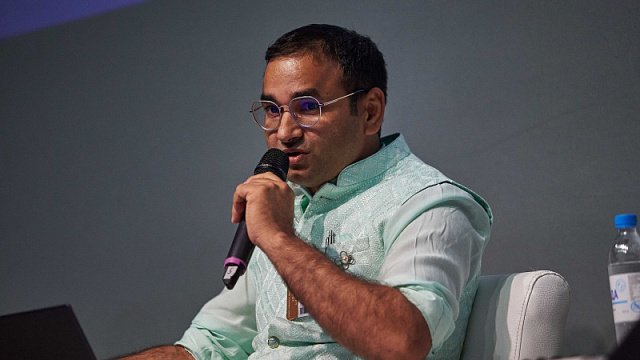06.06.25
18:42
Indian philologist and Slavicist talks about how International Russian Language Day celebrated in New Delhi
Read more in the exclusive material of TV BRICS
Russian is one of the five most widely spoken languages in the world, is widely used in international forums and plays an important role in the development of scientific, cultural, and educational ties. Russian Language Day, which is celebrated today, is included in the United Nations Observances.
Russian Foreign Minister Sergey Lavrov, in his congratulatory message on the occasion of the holiday, emphasised that the role of the Russian language cannot be overestimated. According to him, the spread of the Russian language and culture helps to create a space of peace, security, economic and humanitarian cooperation on the Eurasian continent.
“Further strengthening the position of the Russian language in the world remains one of the unconditional priorities of our humanitarian foreign policy. We will continue to do everything possible to meet the needs of our foreign partners in learning and using the language, obtaining general and scientific information in Russian, and expanding their knowledge about Russia”
Sergey Lavrov Russian Foreign Minister
He also mentioned the creation of an International Organisation for the Russian Language, which will be open to all interested countries.
Tamara Skok, PhD in Philology, Director of the Department of Innovative Linguistic Projects at TV BRICS, and Head of the international project “Modern Russian,” spoke about the dynamics of interest in the Russian language abroad.
“Attitudes towards the Russian language are largely determined by how strong and influential our country is. […] The development of Russian studies in the BRICS+ countries is linked to the fact that Russia plays a unifying, creative role in this community”
Tamara Skok PhD in Philology, Director of the Department of Innovative Linguistic Projects at TV BRICS
According to Tamara Skok, the educational project of TV BRICS “Modern Russian”, is working to involve teachers and students from BRICS+ countries in the study of language and culture. Key initiatives include linguistic and cultural teleconferences, educational programmes “Russian Lessons”, the “Oshibok-net” portal (“No mistakes”), and video materials about life in Russia.
Indian philologist and Slavicist Sonu Saini shared his opinion on the role of the Russian language in India in a conversation with TV BRICS.
“The number of students choosing Russian studies is growing, and new departments are appearing. Currently, there are about 50 universities and schools in India where Russian is taught. For example, new language learning centres have recently opened in Uttar Pradesh and near Delhi. About 70 students enrol in the first year at our Centre for Russian Studies – it is one of the most competitive programmes. Every year, 5-6 thousand people take the entrance exam, and only 70 of them get the opportunity to study Russian”
Sonu Saini Indian philologist of Russian
Sonu Saini also talked about how India celebrates Russian Language Day and the birthday of the great Russian poet Aleksander Pushkin, which are celebrated on the same day.
“Every year we gather at the Pushkin monument in New Delhi, near the Russian House. Despite the heat, the holiday is celebrated with great enthusiasm: poems are recited and award ceremonies are held. Today, for example, the winners of a competition to translate Sergey Alekseev’s story ‘The Brest Fortress’ into 11 Indian languages were awarded. This is an important event, symbolising our commitment to Russian culture,” he shared.
Sonu Saini noted that the convergence of Russian and Sanskrit arouses keen interest among Indian students.
“We have a deep linguistic and cultural connection. The grammatical structure of the languages is similar, especially the case system. This is admirable and makes learning easier. One of our graduate students even conducted research on the similarities between Indian and Slavic traditions – wedding, family, and ritual traditions. This confirms that our cultures are historically close,” he said.
According to the philologist, the Russian language remains relevant in India thanks to strong intergovernmental ties and career prospects.
Sonu Saini noted that knowledge of Russian opens up employment opportunities in such areas as tourism, business, and academia. He said that at the Russian House he met a man who began studying Russian after being inspired by his brother’s home library. It contained more than 10,000 books of Russian literature in Hindi. According to him, this is a vivid example of how culture and literature can motivate education.
Photo: Personal archive of Sonu Saini
Back





